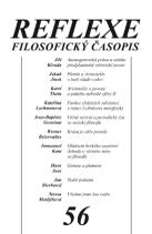Aspects of Differentiation between the Synthetical and Analytical Judgement in Kant
The article’s goal is to bring out the epistemological motivation of Kant's distinction between analytic and synthetic judgments. Two different subject-predicate relations are distinguished: the logico-semantical and the epistemological. Demonstrably, Kant knew instances of purely logico-semantical synthetic and analytic connections of concepts in a judgment. They do not qualify as epistemologically synthetic or analytic; consequently, Kant is not interested in them and they are not classifiable from the standpoint of Critique of Pure Reason, even though Kant offers some ways of understanding them in his Logic and in the Prolegomena. The article uses Kant's scattered remarks to presents three different kinds of synthetic judgments and two kinds of analytic judgments.
The closing section of the article gives a description of the relation of epistemologically synthetic and epistemologically analytic judgments, as these judgments provide the main reason for distinguishing synthetic and analytic judgments as such. The article points out two features of this relation: the precedence of synthesis over analysis and the aim of conceptual analysis in relation to Kant's doctrine of unum, verum, bonum.
The paper is supplemented by a short consideration of Kant's definition of the law of contradiction and by a description of the strong differences between Kant's and Bolzano's definition of synthetic and analytic judgments. Neglecting these differences can lead to a misunderstanding of the proper context of Kant's theory of synthetic and analytic judgments.
Backlinks: Reflexe 43
